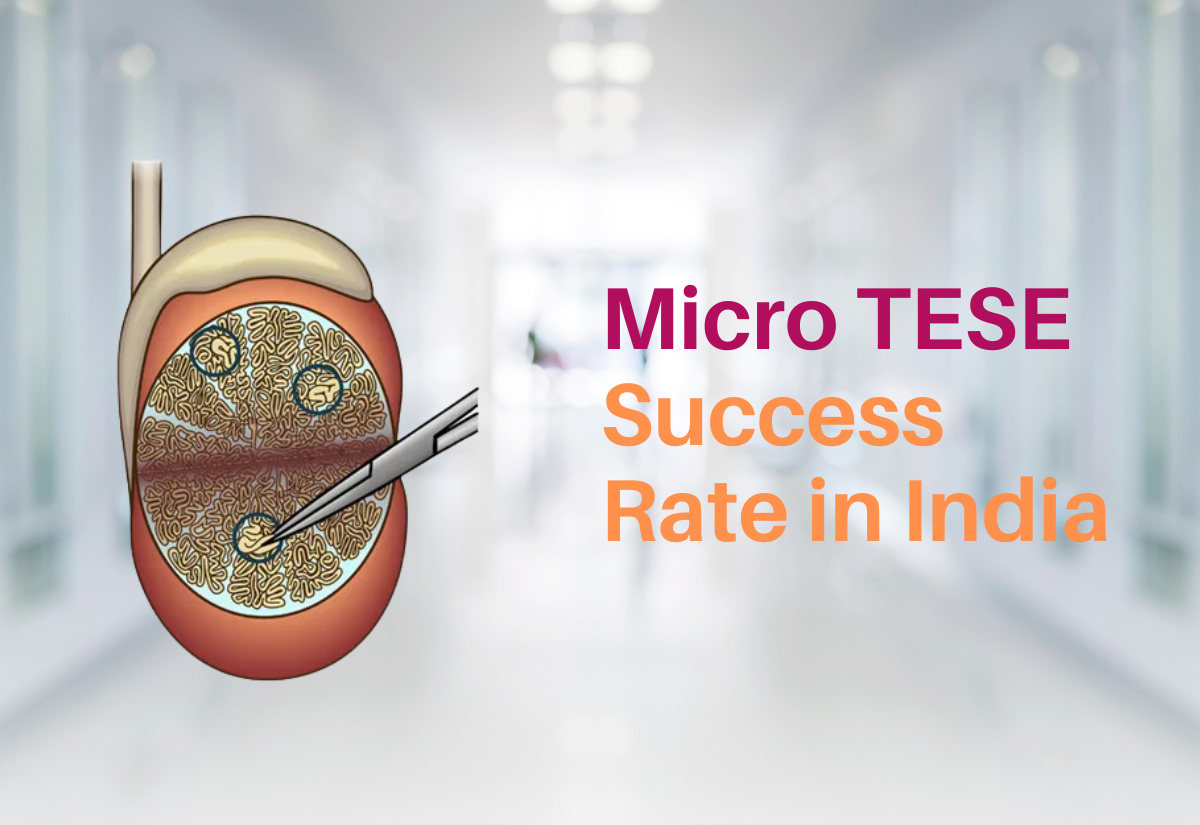Micro TESE Success Rate in India – A Ray of Hope for Male Infertility
Micro TESE success rate in India has become a key focus for couples dealing with male infertility, especially in cases where men suffer from azoospermia (no sperm in semen). It (Microsurgical Testicular Sperm Extraction) is a highly advanced surgical procedure that allows fertility specialists to retrieve sperm directly from the testicular tissue using an operating microscope. Thanks to modern techniques and expert urologists in India, the success rate of Micro TESE has been steadily improving, giving new hope to couples who previously had very limited options for parenthood.
What is Micro TESE and When is it Needed?
Micro TESE is a specialized surgical procedure used when men are diagnosed with non-obstructive azoospermia, meaning the testes are not releasing sperm naturally due to very low production. Unlike conventional testicular biopsy, Micro TESE uses a high-powered microscope, which allows surgeons to carefully locate and extract viable sperm cells from tiny pockets within the testes.
This precision not only increases the chances of finding healthy sperm but also minimizes damage to testicular tissue. The retrieved sperm can then be used in assisted reproductive techniques like Intracytoplasmic Sperm Injection (ICSI), making biological fatherhood possible.
Micro TESE Success Rate in India
India has emerged as one of the most trusted destinations for advanced male infertility treatments. The success rate of Micro TESE in India varies depending on factors such as the underlying cause of azoospermia, patient age, hormonal levels, and the expertise of the surgical team.
- On average, Micro TESE success rates in India range between 40% to 60% in retrieving viable sperm.
- For men with favorable conditions such as focal sperm production, the success rate can be as high as 65%–70%.
- Even in challenging cases, Indian fertility centers report encouraging results due to the use of advanced microscopes and experienced micro-surgeons.
These results make India a leading choice for international patients seeking effective treatment for male infertility.
Factors That Influence Success Rates
Several factors play a role in determining the outcome of Micro TESE:
- Patient’s Age – Younger men generally have better chances of sperm retrieval.
- Hormone Levels – Testosterone, FSH, and LH levels affect sperm production.
- Genetic Factors – Certain chromosomal abnormalities may lower chances.
- Surgical Expertise – The experience of the microsurgeon significantly influences results.
- Laboratory Standards – Advanced embryology labs improve the survival and quality of retrieved sperm.
When these factors are optimized, Micro TESE becomes one of the most successful surgical options for men with azoospermia.
Why Choose India for Micro TESE?
Couples from across the globe travel to India for Micro TESE due to:
- Highly Skilled Urologists and Fertility Experts – Trained in advanced microsurgical techniques.
- Affordable Costs – The procedure in India costs much less compared to Western countries without compromising quality.
- World-Class Facilities – Equipped with cutting-edge microscopes and embryology labs.
- High Success Rates – Indian centers consistently deliver encouraging outcomes for azoospermic men.
- Comprehensive Care – From pre-operative evaluation to IVF/ICSI, patients receive end-to-end support.
Conclusion
Male infertility no longer has to mean the end of the dream of parenthood. With the high Micro TESE success rate in India, couples struggling with azoospermia can now access world-class treatment at an affordable cost. This advanced procedure, combined with India’s skilled fertility specialists and state-of-the-art medical infrastructure, has made biological fatherhood a reality for many men who had lost hope.
If you or your partner are facing male infertility challenges, Micro TESE in India could be the breakthrough solution you’ve been searching for.
Read More: Micro Tese in India

